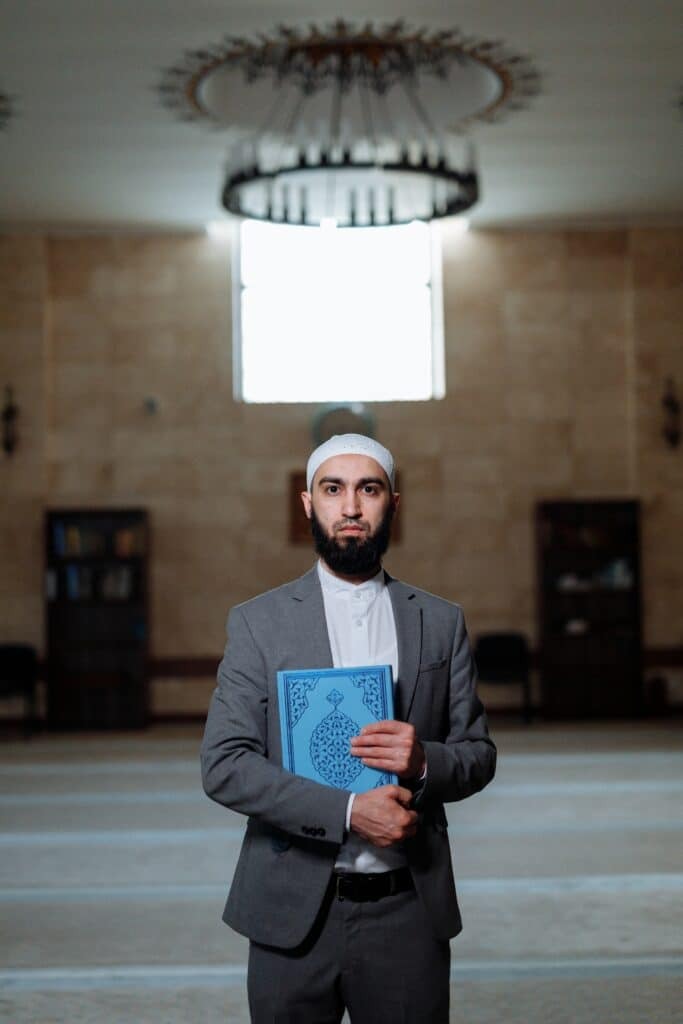Islamic investments in South Africa: What are best choices?
Investors interested in Islamic finance can diversify further with offshore options that meet their ethical standards.
If you want to invest as an expat or high-net-worth individual, which is what I specialize in, you can email me (advice@adamfayed.com) or use WhatsApp (+44-7393-450-837).
Introduction
Looking to make Islamic investments in South Africa? This article will take note of the best options as well as discuss the finer points of Islamic investing.
Islamic finance is a broad term that refers to the financial system based on Islamic law, and it includes Islamic investments. The term encompasses everything from Sharia-compliant investments in the stock market to charitable donations.
In its simplest form, Islamic finance is an alternative way of thinking about money and investing by relating it with religious principles.
It’s based on the idea that it’s important for us as humans to treat each other well and make sure our fellow humans are treated fairly through fair trade practices, ethical business practices and other tenets of Islam.
Engaging in Islamic investments is distinct from other socially responsible forms of investing since it does not distinguish between the spiritual and the secular. The reality that religion influences all financial decisions means that investment practices are subject to considerably greater scrutiny.
Investments must adhere to a precise set of rules if they want to be in compliance with Islamic investment policy. Be sure to consult a financial expert so you can make the right decisions to meet your goals.
What are the best choices for Islamic investments in South Africa?
Islamic banks
The rising popularity of Islamic investments in South Africa has encouraged many banks to provide new products to fill the demand. Many of which offer great choices for your money.
At the 12th annual Global Islamic Finance Awards last year, FNB Islamic Banking won Best Islamic Banking Window for the sixth year in a row at an awards ceremony at the Kempinski Palace in Djibouti, Africa.
The year before that, Standard Bank Group received the GIFA Excellence Award for Premier Islamic Banking for the second consecutive year.
GIFA recognizes the best in Islamic Banking and Finance and has grown to become one of the most coveted awards in Islamic Banking and Finance worldwide.
Other options you might want to consider are the Sharia banking products, life insurance, and equities offerings led by Old Mutual Albaraka Shari’ah Fund, the Old Mutual Albaraka Income Fund, Al Baraka Bank, and Franklin Templeton.
Sukuk (Islamic) bonds
The government of South Africa had kickstarted the demand for Islamic investments when it raised US$500 million from a 5.75-year Sukuk (Islamic) bond issuance in the international capital markets in 2014.
In 2020, at the height of the pandemic, it redoubled its efforts of pushing for the practice as it announced plans to issue Islamic notes to address the country’s widening budget deficit.
A sukuk is an Islamic financial certificate that complies with Sharia, or Islamic law, and is comparable to a bond in Western banking.
The issuer of a sukuk (typically a government) essentially sells an investor group a certificate and then uses the money to buy an asset in which the investor group has a direct partial ownership interest because the conventional Western interest-paying bond structure is not permitted.
Additionally, the issuer must contractually commit to repurchasing the bond at par in the future.
Sukuk bonds then are reliable Islamic investments that is backed by the government of South Africa.
Gold and real estate
The difficulty in making Islamic investments is that shariah-compliant funds are subject to a number of regulations that must be followed.
A Shariah-compliant fund must, among other things, exclude investments that get the majority of their revenue from the sale of alcohol, pig products, pornography, gambling, military hardware, or firearms.
A Shariah-compliant fund must also have an appointed Shariah board, a yearly Shariah audit, and purge certain types of banned income, such interest, by donating them to a charity.
Speculation is not allowed in Islam because it does not create value; rather, it only serves to enrich those who engage in it at others’ expense (or simply take advantage of others’ ignorance). The prohibition on speculation extends to futures contracts.
This makes investments that have widely known value like gold and real estate to be great choices for Islamic investments in South Africa.
Gold, throughout history, has been the most conventional asset you can invest in, and you may find it a reliable vehicle for your money.
Property investing, which entails purchasing a home and renting it out to tenants in exchange for a reliable monthly income, is a popular method of generating passive income. If there are no prohibited elements present, investing in land and real estate are frequently permissible.
The problems faced by property owners, however, are dealing with renters and maintaining the property, which involves fixing any deficiencies and making the dwelling habitable.

What are Islamic investments and why are there so many restrictions?
One of the most important things to know about Islamic investing is that riba (interest) is prohibited in Islam.
The Arabic word “riba,” which meaning “to increase” or “to exceed,” is frequently used to refer to unfair trades or borrowing fees and penalties.
Interest as it is defined in Islam is a fee paid for the use of money. In Islamic law, interest can only be paid if there is an exchange of goods and services, or if one person lends another something without expecting anything in return. The amount of interest that should be paid varies depending on what type of transaction it is.
Even if the interest rate is not higher than market rates, receiving interest on loans or deposits is referred to as riba. The widespread belief is that interest-bearing implies unequal resource exploitation and is equivalent to usury.
The profit allocation between the parties is unfair, for instance, when “unearned income” favors creditors with collateral and cash flow while delinquents must work harder to profit from these loans.
Usury is a contentious issue in the Islamic world. While some scholars argue that usury is prohibited, others believe it’s allowed under certain circumstances.
Sharia law forbids riba for a few different reasons. It is intended to guarantee fairness in transaction. Its purpose is to protect people’s wealth by making unfair and unequal exchanges illegal.
Islam seeks to encourage giving to others and doing good deeds. to eliminate selfish and self-centered attitudes that can breed anger, mistrust, and social hostility.
Sharia law encourages people to act charitably by making riba illegal, which opens up situations where people can lend money without charging interest.
Murabaha, also known as cost-plus finance, is a type of Islamic financing in which both the seller and the buyer agree on the asset’s cost and markup. The markup is where the action happens.
As a result, Murabaha is recognized as a legal type of credit sale by Islamic law rather than an interest-bearing loan (qardh ribawi). Similar to a rent-to-own arrangement, the buyer does not actually own the property until the loan is repaid in full.
Sharia-based financial instruments differ in the same ways that conventional financial instruments do. For instance, a profit-and-loss-sharing partnership is referred to as a mudarabah, whereas a joint venture is referred to as a musharakah.
There are funds that follow the rules of the religion and are Sharia compliant. It is necessary to set up a Sharia board that adheres to Sharia principles and is made up of Islamic academics. Board members are in charge of assessing a fund’s investment choices, including the companies in which it makes investments.
The Arabic word for financial certificates is sukuk. Both sukuk and bonds offer payment streams to investors, but a sukuk’s income cannot be speculative because it would make it no longer be halal.
Asset-based or asset-backed sukuks are both options. The former includes Islamic bonds, whilst the latter includes securitized assets. a special purpose vehicle (SPV) established specifically for the purpose of issuing certificates on capital markets. The concepts of Ijarah are applied to the proceeds in order to buy an asset.
Sukuk are similar to bonds, but with some key differences.
First, they are not equity: They’re a form of investment that involves asset ownership as compared to bonds that are debt obligations. This means that if the asset backing a sukuk appreciates then the sukuk can appreciate accordingly, as opposed to a bond that is tied to its interest rate.
Second, they don’t pay interest like any other form of Islamic investment.
The asset is purchased by a middle party, who then leases it back to the SPV. Prior to the lease’s expiration, the SPV has the option (but not the responsibility) to purchase the leased asset.
The initial sale’s proceeds could also be invested according to the rules laid out in a Wakala transaction. In this kind of transaction, a specific agent by the name of Wakeel is used to carry out the investment, which is only temporary.
Sharia law prohibits investment in companies that work against Islam.
So companies that engage in interest-based transactions are also prohibited because they are considered riba (usury). But there are also other restrictions to Islamic investing.
Companies such as alcohol, pork, gambling and pornography are considered haram (forbidden) under Islamic law. The same goes for any company that engages in gambling or sells pork products.
Islamic finance is a way of investing that is compatible with Islamic law. These investments include halal investments, which are those that are in line with that law. Halal investments abide by sustainable principles and focus on environmentally friendly practices and ethical business practices.

How does Islamic investing work in practice?
Islamic investing is a complex subject. It can be difficult to understand how it works and what it involves, especially if you’re not aware of the vast range of products available in the market.
Be sure to consult with a financial expert if you need clarification on the intricacies of Islamic investing in South Africa.
Many Muslims simply invest in companies that follow Islamic law, meaning halal companies that do not engage in any of the prohibited businesses mentioned above.
Due to its restrictions, the market for Islamic investments is smaller than mainstream investment markets. However, it is growing quite rapidly as more socially conscious investors begin to rethink their investments.
According to the Asian Development Bank, the industry’s global assets as of 2015 totaled at least $1.9 trillion.
Islamic finance has acquired systemic relevance in a number of Asian nations, including Brunei, Bangladesh, and Malaysia, where it has attained at least 15% market share in the domestic banking sector as a result of the industry’s ongoing expansion.
Additionally, nations without a significant Muslim population are starting to welcome Islamic money.
There is a significant market for Sharia compliant finance globally, as seen by the introduction of sovereign sukuks in Luxembourg, Hong Kong, China, the United Kingdom, and South Africa. All of these issuances were at least twice oversubscribed.
The practice has been growing even before that.
In the first ten years of this century, Shariah-compliant funds expanded at an annualized pace of 26%, according to a 2011 research by consulting company PricewaterhouseCoopers (PwC).
According to the research, their expansion reached “an inflection point” between 2002 and 2003 as petrodollar liquidity increased and capital markets in the Gulf Cooperation Council (GCC) nations developed to support investment.
Meanwhile, The Malaysia Islamic International Financial Center said that as of the end of the first quarter of 2017, there were $70.8 billion in total global Islamic assets under management (AUM), up from $47 billion in 2008.
However, because a large portion of investment is made through private placement, it is challenging to determine the industry’s size or worth with accuracy. Additionally, because the funds are not traded on secondary markets, we have limited access to information on their constituents.
These regulations may increase the difficulty and expense of managing a Shariah-compliant fund. Shariah boards, for instance, are made up of Islamic scholars, whose annual fees might total millions of dollars, raising the overall cost of managing the fund.
It is challenging and time-consuming for the scholars to reach agreement for analysis and implementation of a certain course of action because they have different interpretations of Islamic law.
If you are interested in learning more about Islamic investing, it’s best to start with a local or online broker who has experience with the type of investment that you want to make.
Pained by financial indecision? Want to invest with Adam?

Adam is an internationally recognised author on financial matters with over 830million answer views on Quora, a widely sold book on Amazon, and a contributor on Forbes.



